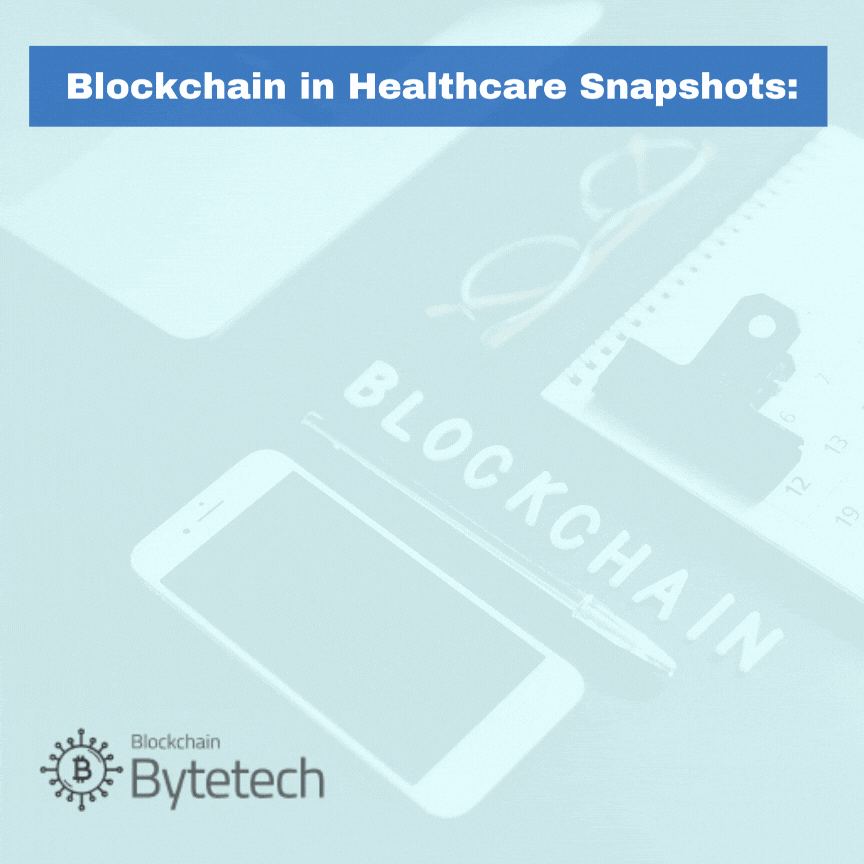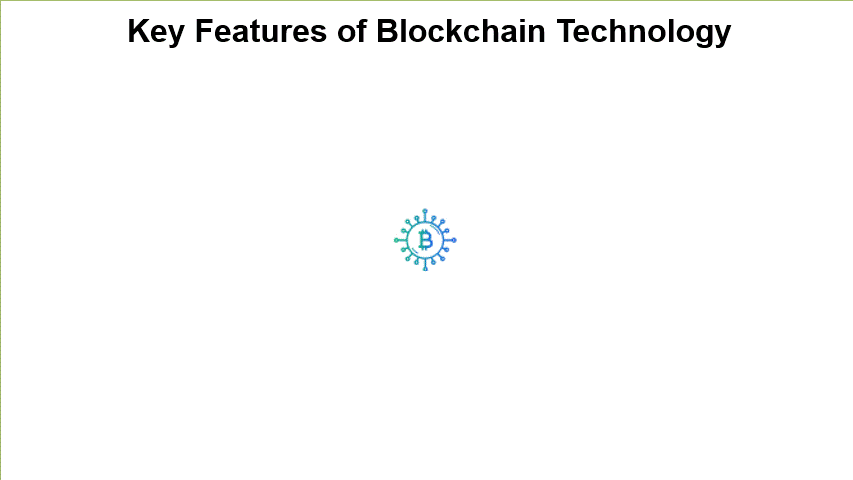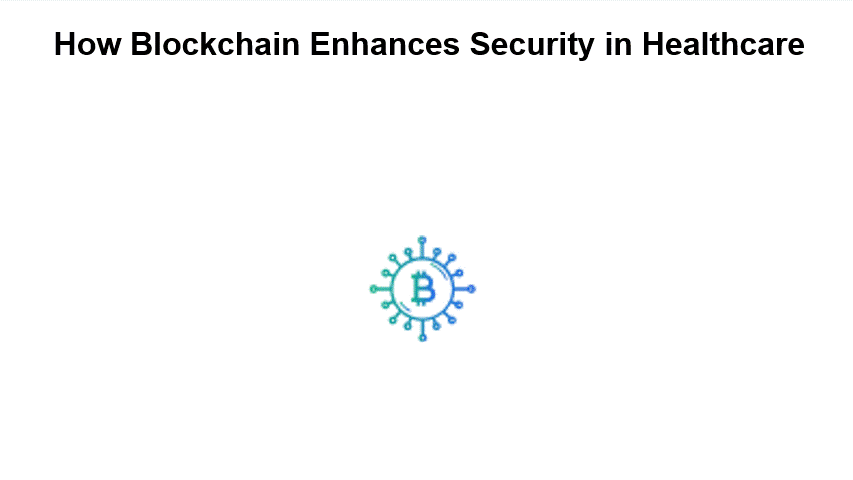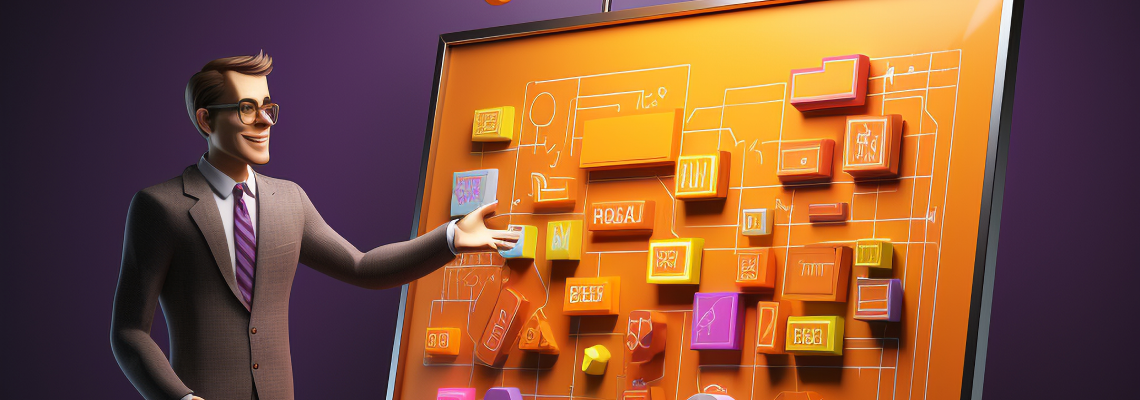Introduction
Cyber threats are among the most devastating risks that companies face worldwide each year. Someone is always trying to hack vital information to compromise business organizations. The healthcare industry is at the forefront of these threats since biological weapons are quickly entering the sphere.
Patient data security is a critical concern for healthcare businesses and administrations, and blockchain technology is already in the spotlight for data protection. Blockchain security in healthcare is another innovation by Blockchain development companies that can prevent data breaches and cyberattacks because its data cannot be changed.

Context
- Data Breach Epidemic: According to the HIPAA Journal report, in 2022, breaches of patient data increased to 45 million individuals in the United States.
- Cost of Cyberattacks: According to IBM’s 2023 Cost of a Data Breach Report, breach costs in the healthcare industry are still the highest at an average of $10.93 million per incident.
- Privacy Concerns: According to Pew Research, 81% of ordinary citizens of the United States are sure that they cannot control the use of their personal information, which leads to a lack of trust in the healthcare system.
- Interoperability Issues: Healthcare workers highlight secure data sharing as one of their biggest challenges. They experience it as a significant barrier to their communication and effectiveness, and 64% of them note data security issues in their work.
The challenges facing the healthcare sector are imminent, and there is a demand for blockchain technology to prevent medical institutes from being targeted by cyberattacks and data theft.
Thesis Statement
A web application based on blockchain is increasingly becoming a novel paradigm for healthcare security. It provides inconceivable levels of data protection and interoperability, coupled with a tamper-proof record-keeping feature, to solve the primary security issues facing healthcare system actors and integrate data-sharing solutions that allow research stakeholders to collaborate effectively in the healthcare sector.
Understanding Blockchain Technology
What is Blockchain?
Picture this: A memo that belongs to millions of computers and is locked and secured by all the computers as well. That’s blockchain technology in healthcare—a unique system in which every piece of information is locked into unbreakable chains, making it perfect for patient data security and electronic health records management.

Decentralization
In blockchain for healthcare security, no single organization controls the entire system. However, a network of computers keeps and checks all records.
- Every network performer has an absolute copy of all the records, resulting in a multiple-level backup.
- Other parts of the system operate effectively even if one of them is out of order.
- A single participant cannot alter them; rather, they are altered with the permission of several participants.
Immutability
Once information enters a blockchain in the healthcare industry, it becomes permanent and unchangeable, like writing in permanent ink that can’t be erased.
- Each new experience is documented as a new posting, but no change is overwritten in order to maintain the whole story.
- It also means that once records have been created, they cannot be changed or even destroyed.
- Every change is logged, which ensures there is a good audit trail.
Transparency
- Blockchain patient data protection combines privacy with transparency. Authorized participants can access the entire history of records while maintaining security.
- Every participant who is authorized receives the same information at the same time.
- All the permitted users can see any transition to a new setup at once.
- There is a complete file of who has done what and when to what
Cryptography
Healthcare data encryption in blockchain uses advanced mathematical techniques to protect information, similar to having an unbreakable secret code.
- Every piece of data is encrypted with its digital security key.
- Information can only be retrieved by individuals with the relevant keys, and not everyone is issued these keys.
- One of the reasons is that the method of encryption makes it nearly impossible to hack or even change data.
How Blockchain Works
Blocks and Chains
Think of blockchain for secure data exchange as building with digital Legos, where each block contains essential healthcare information.
- All the blocks consist of one or more encrypted records or transactions.
- In a nutshell, every block links the previous one, harmonizing through a code.
- They create an ironclad link across the countries.
- Such a system is evident since trying to change one block is possible only if the entire chain is to be disrupted.
Consensus Mechanisms
For blockchain use in healthcare, special rules ensure everyone agrees on what information is correct.
- If the network receives new information, it must thoroughly authenticate it.
- Many computers verify and validate various transactions.
- Important to recognize that many strategies can be used to achieve that.
- The system only allows the input of information when most entities are in sync.
Smart Contracts
Blockchain development companies have their own computer programs called smart contracts that can perform healthcare tasks as soon as a specific condition is met.
- Adhering to privacy and security regulations mechanically.
- Perform functions to which pre-determined instructions were provided.
- Minimize mistakes and increase the effectiveness of the work.
- Promote standard compliance in delivering healthcare.
Types of Blockchains
Public blockchains
Public blockchains are similar to a public reference library. Anyone can register and contribute towards data management, while the content of data is private and encoded. These systems are fully opulent and do not hold any secret.
Private blockchains
Private blockchains work more like hospital records. They can only be accessed by officials with permission to update them, making them ideal for cybersecurity in healthcare applications.
Public Vs. Private Blockchain
| Parameter | Public Blockchain | Private Blockchain |
|---|---|---|
| Access | Open to everyone | Restricted to authorized users |
| Speed | Generally slower | Faster transactions |
| Security | Highly secure through mass participation | Secure through controlled access |
| Cost | Higher due to an extensive network | More cost-efficient |
| Control | No central authority | Controlled by organization |
The Need for Security in Healthcare
The Sensitive Nature of Healthcare Data
Patient Data
Patient information belongs to the patient and may only be used by practitioners for patient management. Instead, hackers are attacking electronic health records (EHRs) for physical and mental health information, as well as genetic, financial, and social security numbers.
These sensitive digital records can be utilized against the population during wartime. However, the emergence of blockchain in healthcare applications promises to be formidable against such cyber threats.
Compliance and Regulations
Strict rules, like HIPAA in the United States, govern cybersecurity in healthcare. These laws require the implementation of particular security measures to safeguard patient information. Breaking these rules can result in massive fines and legal consequences, making blockchain security in healthcare an attractive solution.
Current Security Challenges in Healthcare
Cybersecurity Threats
The healthcare industry is increasingly targeted for attacks on patient data security. Hospital ransomware attacks doubled in 2023, with attackers demanding a million dollars or so for the decryption of medical records. Blockchain technology in healthcare offers a powerful defense against these growing threats.
Data Fragmentation
Healthcare data privacy suffers when patient information is scattered across different systems. Each hospital, clinic, and insurance company keeps its records on different accounts. This fragmentation creates security gaps that blockchain in healthcare applications can help address by providing a unified, secure system.
Human Error
Much as technology may have progressed, human errors are still a security concern. Healthcare workers might:
- Send some confidential data to the wrong people.
- Use weak passwords for electronic health records.
- A patient record is left on an unattended terminal.
- Share login credentials with colleagues.
- Surrender to phishing with the intent of acquiring medical information.
The Cost of Data Breaches in Healthcare
Financial Costs
When healthcare data encryption fails, the costs are staggering. A single breach averages $9.2 million in:
- Legal fees and settlements
- Regulatory fines
- Investigation costs
- Patient notification expenses
- Security system upgrades
- Lost business revenue
This explains why many organizations are turning to blockchain for medical records protection.
Patient Trust
When blockchain patient data protection isn’t in place and breaches occur, patients lose faith in their healthcare providers. This damaged trust can lead to:
- Patients withholding crucial health information
- Delayed medical treatments
- Skepticism towards digital health services
- Resistance to sharing necessary data
- Switching to different healthcare providers
This makes blockchain for secure data exchange increasingly crucial for maintaining patient confidence in healthcare systems.
How Blockchain Enhances Security in Healthcare

Blockchain’s Role in Protecting Patient Data
Decentralization and Security
Blockchain technology in healthcare works like a digital vault spread across many computers. Instead of storing patient data security in one place, blockchain breaks it into pieces and distributes them across a network. This means attackers can’t target a single point to steal electronic health records.
Data Encryption
Healthcare data encryption in blockchain systems uses advanced mathematical codes to protect information. It is like a unique lock that can open only with the correct key. Not just any doctor or any health care worker can simply open the folder and get to view more sensitive data about the patient.
Immutable Records
Blockchain security in healthcare creates permanent, unchangeable records. Once information is entered into the system, it is very difficult to delete it. Unlike other records, every alteration is traceable, making it hard for anyone to make a change or delete a patient record in secrecy.
Enhancing Data Integrity and Accuracy
Ensuring Accurate Data Entry
Blockchain technology in keeping medical records means that each byte of data remains precisely as input. A blockchain development company creates systems in which each new entry must be verified by multiple participants, preventing mistakes from entering the system.
Reducing Medical Errors
Blockchain for healthcare security provides a single source of truth for patient information. It keeps the patient’s records clear and reduces misunderstandings that are usual when one doctor has a different view of a patient than another.
Streamlining and Securing Data Sharing
Interoperability
Blockchain use in healthcare enables different medical systems to work together seamlessly. It’s like creating a universal language that all healthcare providers can understand and use while maintaining cybersecurity in healthcare standards.
Secure Data Exchange
Blockchain in healthcare applications makes sharing patient information as safe as sending it through an armored vehicle. Doctors can quickly access up-to-date records, while blockchain patient data protection ensures unauthorized users can’t intercept the information.
Protection Against Cybersecurity Threats
Ransomware and Malware
The blockchain in the healthcare industry creates multiple backups of data across its network. When attackers attempt to ransom the patient’s data, providers can easily obtain copies from other participants in the network.
Resistance to Hacking
Healthcare data privacy in blockchain systems benefits from the strength of numbers. Threatening the system would require attacking thousands of computers at once, so hacking into it is virtually impossible.
Blockchain for Smart Contracts in Healthcare
Automated Transactions
Blockchain, which enables the exchange of data securely, also has smart contracts to perform routine operations. These digital agreements are able to work out insurance claims, collect consent forms from patients, and transact billing activities on their own.
Trust and Transparency in Contracts
Some blockchains in healthcare use cases can be understood as smart contracts functioning as digital referees. They automatically set rules and agreements between patients, doctors, and insurance companies so everyone complies with the introduced terms without additional help.
Use Cases of Blockchain in Healthcare Security
Electronic Health Records (EHR)
Blockchain for EHR Management
Blockchain technology in healthcare revolutionizes the handling of electronic health records. Think of your medical history as a virtual book on your record with a dial, like a file cabinet with locks for each part of the story. You alone, along with your selected medical caregivers, only have the right and access codes to read or put in new data.
Access Control and Patient Consent
Patient data security reaches new heights when blockchain puts patients in control. Blockchain patient data protection systems allow people to grant or revoke access to their records easily. They function like digital permission slips that patients may tailor to the doctor’s or healthcare facility’s needs.
Medical Supply Chain Management
Tracking Pharmaceuticals
Blockchain in healthcare applications transforms how we track medicine from factory to pharmacy. Every drug creates a distinct digital shadow that follows it around like a digital body double. It assists in identifying counterfeit drugs and guarantees that patients actually receive authentic, harmless treatments. A blockchain development company can create systems that:
Ensuring Transparency
Healthcare data privacy extends to supply chain management through blockchain for secure data exchange. Each process that a medicine goes through ends up being documented permanently.
Health Insurance and Billing
Secure Insurance Claims
Blockchain security in healthcare streamlines insurance claims. The conditions stated within a policy are validated automatically through a smart contract when a claim is made. This technology saves time and prevents fraud by:
Improved Billing Processes
Blockchain improves cybersecurity in healthcare billing. It records details of treatment costs, insurance, patients’ balance records, and all other payment details.
Telemedicine and Remote Healthcare
Telemedicine Security
Blockchain technology strengthens telemedicine security in the healthcare industry. Imagine having a confidential video conference in which only your voice and personal health information are shared. Healthcare data encryption protects video consultations, patient messages, prescription orders, and medical file sharing.
Challenges and Limitations of Blockchain in Healthcare
Technical Barriers
Scalability
Blockchain technology in healthcare faces significant challenges when handling massive amounts of medical data. Imagine trying to send millions of photos through a small pipe; as more electronic health records enter the system, everything slows down. Contemporary blockchain systems allow for very low TPS (transactions per second).
Integration with Legacy Systems
Think of an attempt to link a current model smartphone to an eighties television set. This is similar to the challenge of integrating blockchain for healthcare security with existing hospital systems. Many healthcare organizations use older computer systems that weren’t designed to work with blockchain patient data protection methods.
Regulatory and Legal Concerns
Compliance with Healthcare Regulations
When a blockchain development company creates healthcare solutions, it must navigate complex regulations like HIPAA. This challenge can be compared to building a house, where each neighborhood has different construction rules. Healthcare data encryption methods must meet strict standards across various locations and jurisdictions.
Data Privacy
While blockchain in the healthcare industry offers strong security, its permanent nature raises privacy concerns. If data is recorded on the blockchain, it is stored there permanently. This permanence can conflict with laws like the “right to be forgotten” and creates challenges for protecting sensitive patient data security.
Adoption Barriers
Cost and Infrastructure
Implementing blockchain security in healthcare requires significant investment, similar to rebuilding a city’s entire road system. Such factors include, but are not limited to, costs of acquiring and maintaining the hardware, such as servers; costs of developing software to meet the organization’s needs; costs of providing staff training; and other costs associated with implementing information technology.
Resistance to Change
Healthcare professionals often hesitate to adopt blockchain in healthcare applications for several understandable reasons, including comfort with existing systems, concerns about disrupting patient care, limited understanding of the technology, and fear of technical complications, among other reasons.
The Future of Blockchain in Healthcare Security
Ongoing Developments and Research
Innovations in Blockchain Technology
Blockchain technology in the healthcare industry continues to evolve rapidly. Imagine blockchain technology merging with artificial intelligence and the Internet of Things (IoT) devices. This combination would create more intelligent, faster systems for protecting electronic health records. Year after year, blockchain development companies have found new ways to increase blockchain throughput while enhancing security.
Key innovations include:
- Quantum-resistant encryption methods
- Lightning-fast transaction processing
- Seamless integration with medical devices
- AI-powered security monitoring
- Advanced privacy-preserving techniques
Regulatory Evolution
That is why compliance is increasing as blockchain technology reaches the stage of healthcare security. Healthcare institutions, federal agencies, and government agencies are working together to create new standards for blockchain patient data protection. These evolving regulations aim to balance innovation with patient privacy, ensuring that blockchain use in healthcare follows clear guidelines.
Potential Impact on Healthcare Security
Improved Patient Outcomes
Blockchain security in healthcare promises to transform how we protect and share medical information. When healthcare providers can securely access complete patient histories through blockchain for medical records, they make better decisions.
This leads to:
- Faster, more accurate diagnoses
- Reduced medical errors
- Better coordinated care
- Lower healthcare costs
- Improved patient satisfaction
Global Healthcare Security
The future of cybersecurity in healthcare looks increasingly interconnected. Blockchain in the healthcare industry will ensure the secure sharing of medical research, patient data, and treatment protocols across borders. Healthcare data encryption through blockchain creates a universal language for patient data security that works everywhere.
Looking ahead, blockchain for secure data exchange will:
- Connect remote medical facilities
- Enable global health research
- Support international patient care
- Prevent cross-border healthcare fraud
- Streamline worldwide medical supply chains
Such developments prove that the blockchain healthcare application is still growing. As healthcare data privacy becomes more critical, blockchain technology offers a path toward a more secure, efficient, and connected global healthcare system. Extensive prospects lie in the future of using this technology for patient data security as well as for enhancing the healthcare system globally.
Conclusion
Recap of Blockchain’s Benefits in Healthcare Security
Blockchain technology transforms patient data security in healthcare through unbreakable encryption and transparent access logs. Electronic health records gain unprecedented protection, while healthcare providers benefit from secure data sharing and improved cybersecurity in healthcare operations.
The Need for Innovation in Healthcare Security
As cyber threats evolve, healthcare data privacy demands innovative solutions. Blockchain in healthcare applications offers robust protection for sensitive medical information, making it essential for modern healthcare providers to partner with a blockchain development company.
The future of patient data protection relies on embracing blockchain for healthcare security. Healthcare leaders must invest in this transformative technology to safeguard electronic health records and create a more secure, connected healthcare ecosystem.
FAQs
What is the main benefit of blockchain in healthcare?
It is also transformative in the area of security because, through the use of blockchain, patient details can be made secure in a decentralized, non-tamperable, and transparent manner.
Can blockchain be used to prevent healthcare data breaches?
Of course, through the cryptography feature, decentralization, and ledger feature, it is almost impossible for hackers to infiltrate the system and corrupt the data that is stored in the blockchain.
What are the challenges of using blockchain in healthcare?
The key issues affecting the implementation of eHR are scalability, interoperability with other systems, legal requirements, and cultural change.
How does blockchain improve patient care?
Blockchain will help create authentic, digital, and real-time patient records, avoiding mistakes and promoting credibility among patients and providers.
How can blockchain improve data security in healthcare?
Blockchain allows for the creation of immutable medical records, the secure and encrypted exchange of data, and the tracking of access to such records. It ensures healthcare data privacy while allowing authorized healthcare providers to access, use, and update patient information securely.














